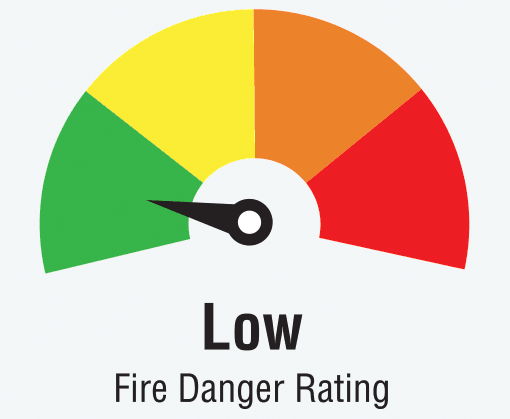The Resort Municipality of Whistler (RMOW) seeks to incorporate the needs of all of residents and visitors, now and into the future.
The RMOW has incorporated accessibility and inclusion into the municipality’s guiding policy documents and will consider the Accessible Canada Act and the Accessible BC Act as municipal policies and plans are created and updated.
Official Community Plan (OCP)
The RMOW is leading a process to update Whistler’s Community Vision and OCP. This process began in January 2018 and is a continuation of the 2010 to 2013 OCP update process.
Universal Design (UD) is a key accessibility concept and a UD philosophy is included as a policy objective in the RMOW’s newly proposed OCP, which is currently at third reading. The new OCP includes the following definition of UD:
The design of products and environments to be usable by all people, to the greatest extent possible, without the need for adaptation or specialized design. Universal Design is based on seven principles:
(1) Equitable Use: The design is useful and marketable to people with diverse abilities.
(2) Flexibility in Use: The design accommodates a wide range of individual preferences and abilities.
(3) Simple and Intuitive Use: Use of the design is easy to understand, regardless of the user’s experience, knowledge, language skills or current concentration level.
(4) Perceptible Information: The design communicates necessary information effectively to the user, regardless of ambient conditions or the user’s sensory abilities.
(5) Tolerance for Error: The design minimizes hazards and the adverse consequences of accidental or unintended actions.
(6) Low Physical Effort: The design can be used efficiently and comfortably and with a minimum of fatigue.
(7) Size and Space for Approach and Use: Appropriate size and space is provided for approach, reach, manipulation, and use regardless of user’s body size, posture or mobility. (Mace 1985) (Centre for Excellence in Universal Design)
In the newly proposed OCP, UD is included through Chapter 5: Land Use and Development‘s Residential and Visitor Accommodation sections as well as Chapter 8: Health, Safety and Community Well-Being’s Accessibility section.
View the latest Official Community Plan document at whistler.ca/OCP.
Age-friendly Action Plan
In March 2020, the Union of BC Municipalities (UBCM) provided a grant of $24,418 to the RMOW under Stream 1 (Age-friendly Assessments, Action Plans & Planning) of the UBCM 2020 Age-friendly Communities Program. The purpose of this funding was for the RMOW to undertake an assessment of Whistler’s current age‐friendliness and then develop a plan to support local seniors to age‐in‐place and to further make Whistler an age‐friendly community.
The project’s final report makes recommendations for the Whistler community within each of B.C.’s following eight age‐friendly community components:
- Outdoor spaces and buildings;
- Transportation (including traffic safety);
- Housing;
- Respect, social inclusion, or cultural safety;
- Social well‐being and participation;
- Communications and information;
- Community engagement and employment; and
- Community support and health and wellness services.
Review the report: Age-friendly Action Plan
Accessible Canada Act
The Accessible Canada Act is federal legislation to ensure a barrier-free Canada. According to the Government of Canada, “This legislation will benefit everyone in Canada, especially persons with disabilities, by helping to create a barrier-free Canada through the proactive identification, removal and prevention of barriers to accessibility wherever Canadians interact with areas under federal jurisdiction.” The Government of Canada summarizes the areas affected by the act as follows: T
- Service Design and Delivery: Receive services that are accessible to all
- Built Environment: Move freely around buildings and public spaces
- Employment: Access to employment opportunities and accessible workplaces
- Information and Communications Technologies: Accessible digital content and technologies
- Communications: Barrier-free services and spaces for persons with communication disabilities
- Transportation: Barrier-free federal transportation network
- Procurement: Ensure purchases of accessible goods, services and facilities
The Accessible Canada Act received royal assent on June 21, 2019 and it is now being implemented.
For more information about the Accessible Canada Act can be viewed here on the federal government web pages
Accessible British Columbia Act
On June 17, 2021, the Provincial Legislature passed the Accessible British Columbia Act into law. The government has recently formed a provincial accessibility committee to support the establishment of accessibility standards. Theses accessibility standards will address the following areas:
- Employment (hiring, workplace standards, etc.)
- Service delivery (getting goods, services, or programs)
- Built environment (buildings, places, and spaces)
- Information and communications (human communication such as the way people interact and communicate in the way that works for them, and technical communication such as websites and documents)
- Transportation (buses, ferries, trains, etc.)
- Health (hospitals, clinics, services)
- Education (early childhood education, kindergarten to grade 12, post-secondary education, etc.)
- Procurement (buying services)
The law will apply to the Provincial Government first. Then regulations will be made to identify organizations that will also need to follow the new law. These identified organizations will be engaged during the development of these regulations.
For further details on the Accessible British Columbia Act click here to go to the provincial government website.

